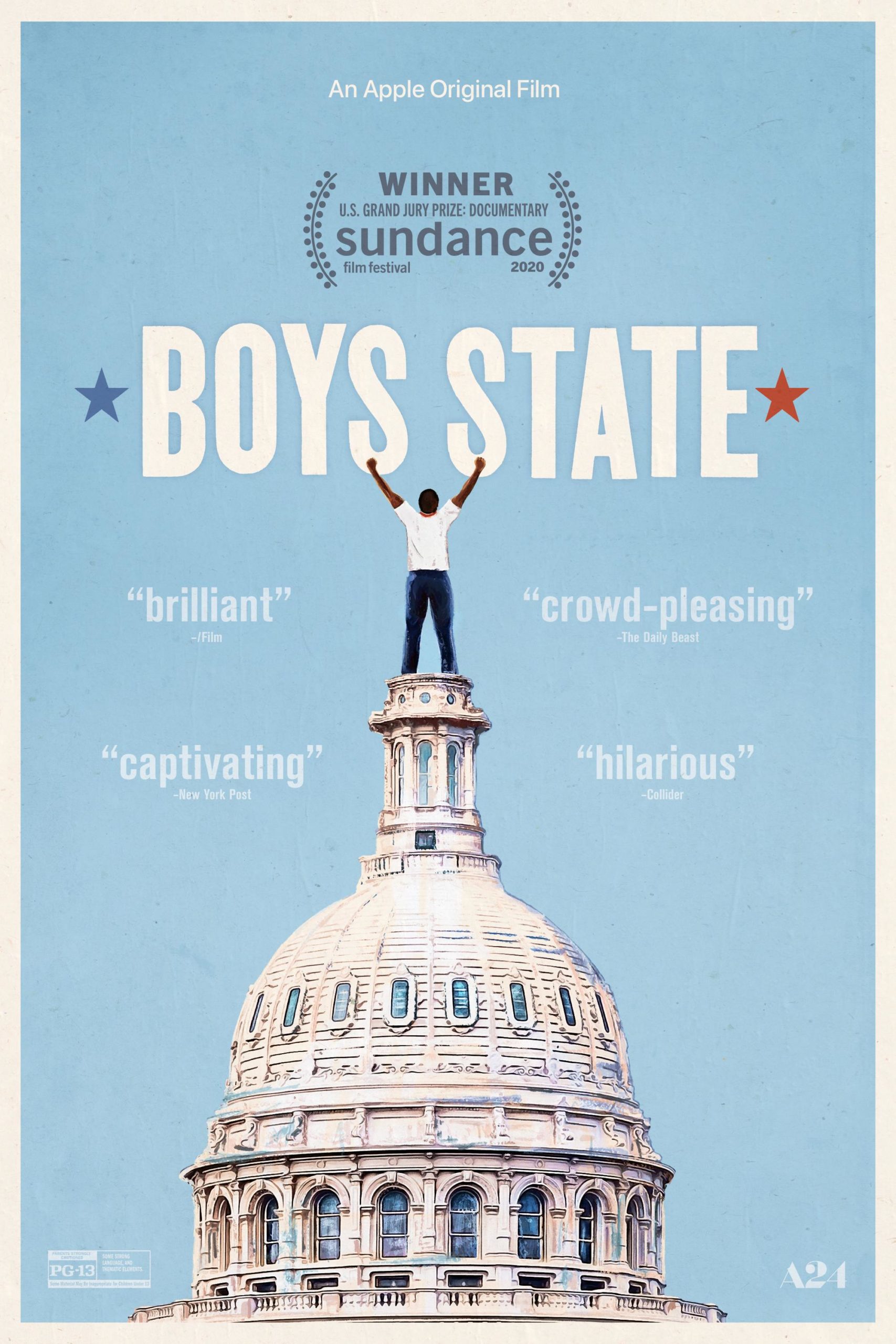“Will this turn into Lord of the Flies, or will it get under control?” said filmmaker Amanda McBaine as she reflected on filming the chaos that is “Boys State.” For the documentary, McBaine and fellow filmmaker Jesse Moss follow a group of high school boys’ participation in the Texas Boys State program, run yearly by the American Legion. In this program, students are arbitrarily split up into political parties — Federalists and Nationalists — and then spend a week creating platforms and campaign strategies, in addition to running for various positions, the most prestigious being governor.
Watching “Boys State” was like being thrown back into high school Model United Nations. Everyone was screaming, rowdy and tired. Some students were fervently debating gun control and abortion, while others giggled over joke legislation. It’s all fun and games until the film and its subjects start drawing connections between the fictional Boys State and modern American politics.
One of the participants, Steven Garza, is clearly an underdog. He’s soft spoken and kind in a room full of screaming teenagers. But more importantly, he’s a Bernie Sanders supporter among a group of largely white conservatives. Garza is running for governor as a Nationalist with liberal René Otero, a gifted speaker, as his party chair. They are two of the few people of color at the event. Facing almost impossible odds as both the racial and political minority, Garza commits to a strategy of honesty and cooperation.
The Nationalists are running against the Federalists who are headed by party chair Ben Feinstein, an amputee full of lighthearted humor and political ferocity. Feinstein leans into mud-slinging and champions a strong, conservative party that ends up winning almost all of the elite Boys State positions, including governor.
This result seems to push the cynical mindset: Politics is dominated by dirty tricks, popularity contests and partisanship. However, the documentary’s subjects seem to have walked away with a different perspective.
The Daily was invited to a collegiate press conference where film subject Robert MacDougall credited the Boys State program with minimizing his political cynicism. In the film, MacDougall runs in the Nationalist primary with an ultra-conservative platform and loses to Garza. Later on, MacDougall admits that he did not believe in the rhetoric but had been lying to appeal to voters.
“You don’t have to lie to win all the time, and you don’t have to be dishonest or hide yourself or what you’ll do or what you believe in,” MacDougall reflected during the press conference. “If you have those conversations to get to know the people around you, on the other side, you can make progress in politics.”
Garza shared similar sentiments, saying that he was able to conquer partisanship at Boys State. “Can we put aside labels and sit down with some sort of agreement? … [I] wish more politicians around the country would sit down with their opposition and go home knowing they did something good for the American people.”
I don’t know if I am convinced. While the story of “Boys State” showed some promise for our political future, it also highlighted our system’s greatest faults. The boys showed that compromise and virtue driven politics have potential, but they also demonstrated how partisan mud-slinging can be enough to cinch an election. Regardless of the takeaway, the film is excellent: filled with compelling characters, difficult questions and clever filmmaking that dips you right into the madness. “Boys State” is a fascinating and important exploration into the state of politics in America, and questions what steps need to be taken to protect democracy and civil discourse in the years to come.
“Boys State” is available for streaming on Apple TV+.
Contact Kirsten Mettler at kmettler ‘at’ stanford.edu.
